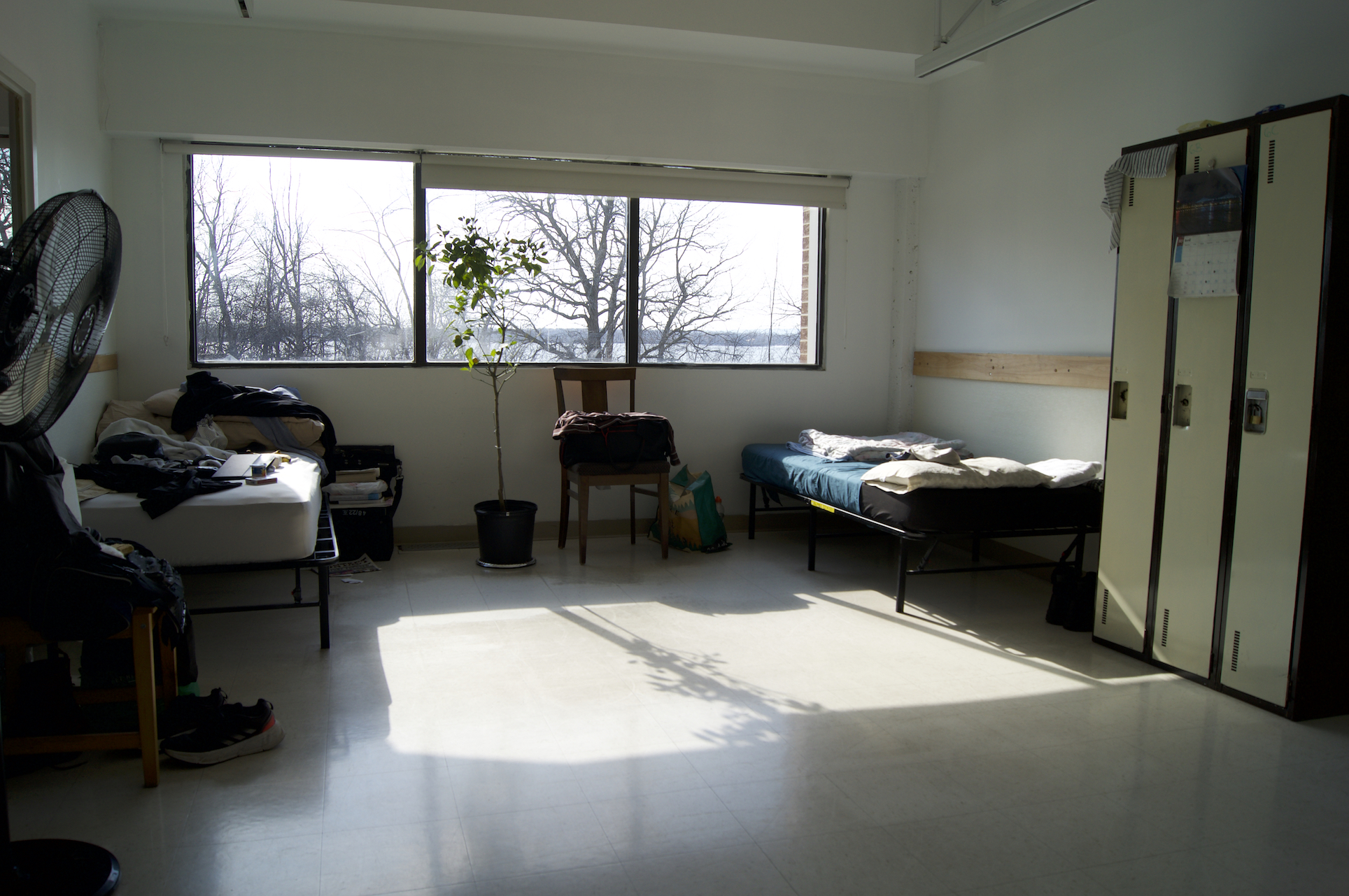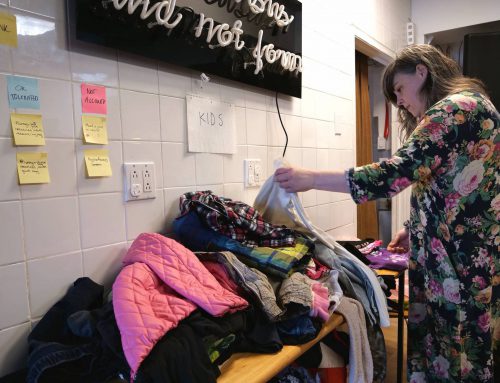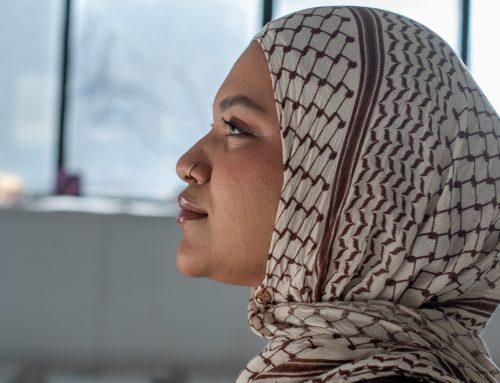BY Thomas Quinn & Delaney Kelly
Alena Ziuleva, Director of the Southern West Island Community Council (SWICC), says that there is a homeless population in the West Island who are often ‘couch surfing.’ This makes them less visible than the homeless downtown who may be seen at shelters and Metro stations.
Ziuleva says that affordable housing is the main problem.
“There is a huge lack of affordable housing. It’s pretty much nonexistent in the West Island. The working poor in the West Island will end up using almost their entire income on housing and have little money left for other necessary expenses like food and education,” she says. “There is a domino effect where people who have a lack of access to affordable housing will also then experience food insecurity.”
The Ricochet Homeless Shelter in Pierrefonds-Roxboro offers 49 beds for beneficiaries. They offer two programs. There is an emergency program that offers 24 beds and a transition program that offers 23. The emergency program is only available to beneficiaries overnight.
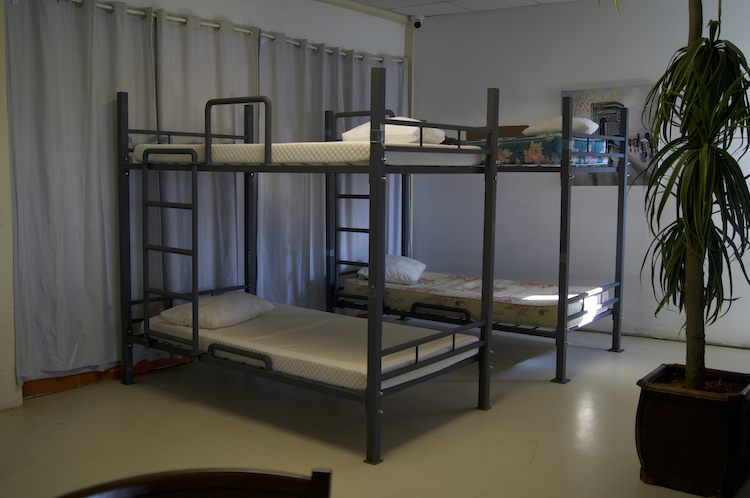
Two bunk beds for people experiencing homelessness at the Ricochet Homeless shelter. Photo by Thomas Quinn.
Tania Charron is the Shelter’s Executive Director. She says that the problem on the West Island is only getting worse.
“The pandemic made peoples’ situations more fragile, and they were already in precarious situations,” she says.
There are two different food banks available in the West Island for those experiencing food insecurity. The West Island Mission located in Pointe-Claire, and On Rock Community Services in Pierrefonds-Roxboro.
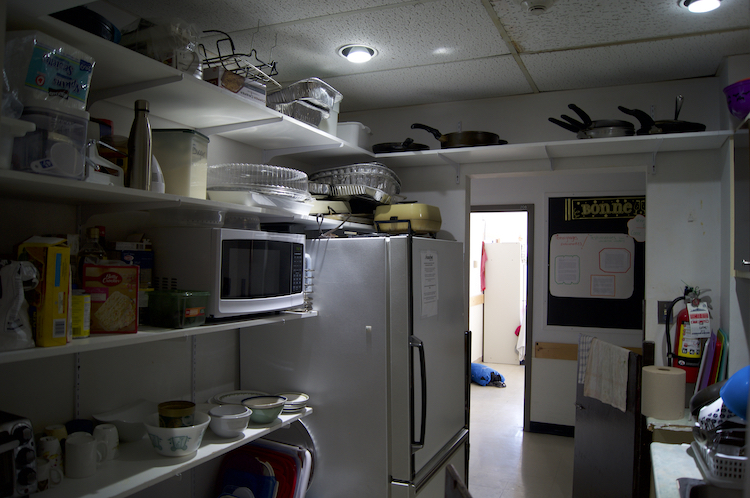
The communal kitchen at the West Island Ricochet Homeless Shelter. Photo by Thomas Quinn.
Suzanne Scarrow is the Executive Director of West Island Mission and says that demand for food has dramatically increased in the last year.
“We are up about 45 per cent (of people seeking food donations) in the last year,” Scarrow says. “I think the majority of [food insecurity] is due to inflation. We are seeing a lot of new clients who are on fixed incomes such as pension, welfare, or disability. They cannot make ends meet. We are seeing an onslaught of poverty.”
She doesn’t see things turning around any time soon.
“We are looking at another 18 months before anything changes. We see that the government is implementing small changes, but it isn’t enough to get these individuals out of poverty,” she says. “We need more community organizations to pinpoint the root of food insecurity instead of just providing food as a temporary band-aid.”
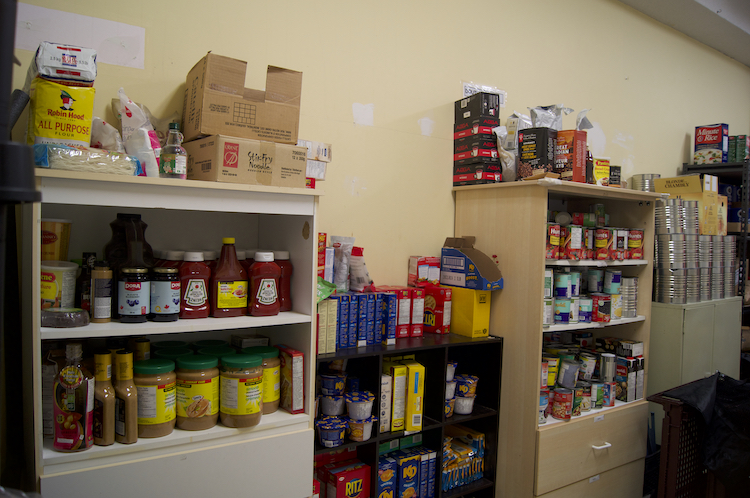
A collection of food preservatives provided by West Island food banks in the Ricochet Homeless Shelter communal kitchen. Photo by Thomas Quinn.
Scarrow says that 90 per cent of their new clients since Covid are seniors.
“The seniors who come in are coming in with a lot of anxiety and stress,” she says. “They have been able to manage themselves up until now quite well but suddenly their rent, food and price of basic needs have all increased and it is out of their control.”
Charron agrees that about half of the people facing homelessness are over 50.
“Many of the people who lived in the West Island and were once middle class are retiring now are facing challenges such as losing their partners and their employment. It’s multiple risk factors combined,” she says.
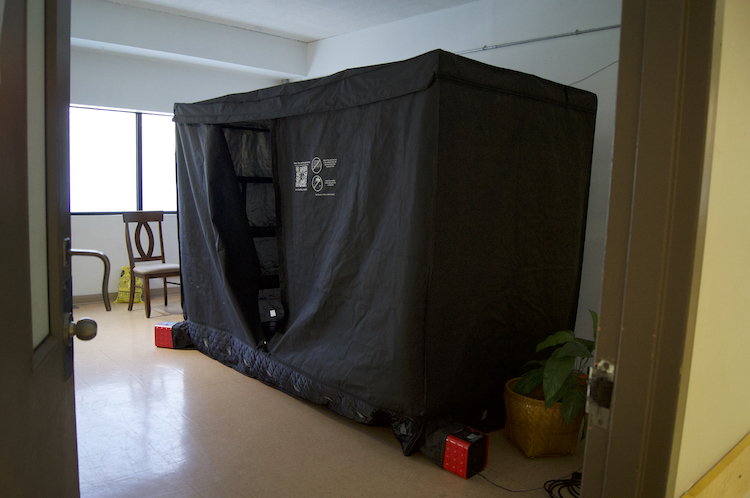
The ZappBug tent is used by the Ricochet Homeless Shelter to rid newcomers’ belongings of pests like bed bugs. Photo by Thomas Quinn.
Charron is also the Executive Director of West Island Youth Action. It focuses mainly on preventing homelessness, sometimes through intervention, but mainly through community outreach.
Women fleeing conjugal violence, are another large population experiencing homelessness. Sometimes with their children. Guylaine Simard is the Executive Director of the West Island Women’s Shelter.
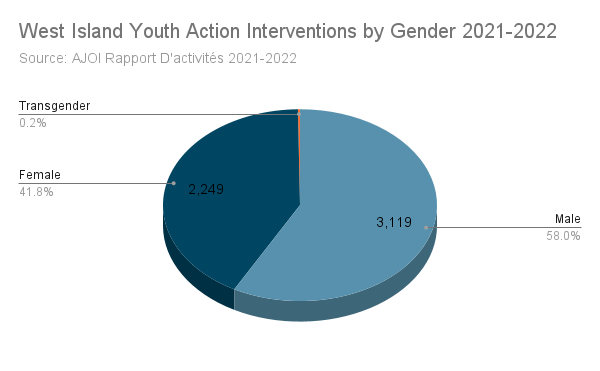
Gender distribution of West Island Youth Interventions from 2021-2022. Pie Chart by Thomas Quinn.
“There are apartments where women who need a safe place to stay will live after the short-term housing. They can live there up until a maximum of 21 months. There is a team of intervention workers there 24/7 on location for the women and children there,” Simard says. “We have a 24/7 crisis intervention line that serves West Island women, and their children, to ensure their security. Sometimes it is people who are close to a victim asking how they can help them.”
A proposed Ricochet Homes’ affordable housing project in Sainte-Anne-de-Bellevue has been met with strong opposition. If the housing project is rejected, the building could end up vacant and Ricochet Homes’ federal funding could be put in jeopardy.
